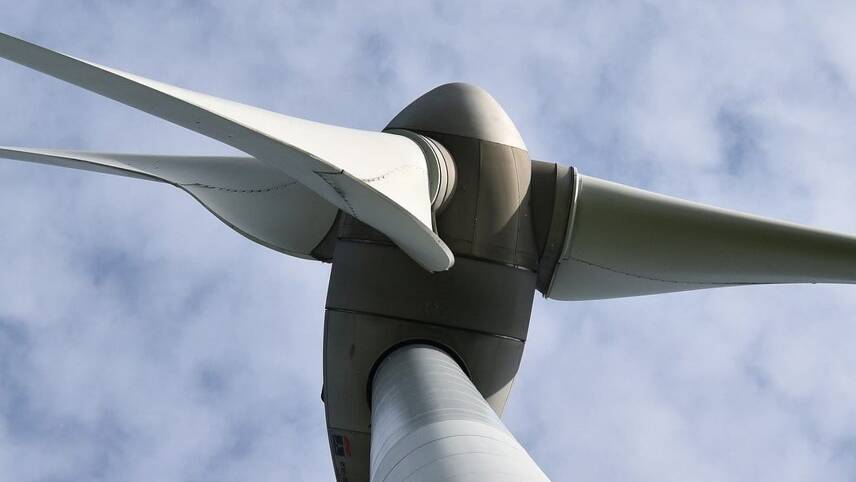Member only content free until 26/05/2024
To continue reading this article and enjoying free access to all Utility Week’s content up to the 26/05/2024 Register today!
Ready to become a member?

The government should investigate scrapping the existing framework of competitive auctions for offshore wind CfDs (Contracts for Difference), the sector’s champion has urged.
In an independent report, published today (Wednesday 5 April), government-appointed offshore wind champion Tim Pick outlines a wide-ranging set of recommendations designed to help spur the sector.
The report says CfDs have been an undoubted success in supporting large scale deployment, fostering innovation and driving down costs of fixed bottom wind power. Under CfDs, low carbon energy projects win entitlement to a guaranteed strike price for the power they generate.
However it says a re-balancing of objectives to give more weight to other factors, like accelerated roll out and supply chain development, may be appropriate in the current global context.
Making success in winning a CfD dependent on an auction at a late stage in a project’s development cycle engenders a cautious approach, the report warns.
This in turn puts off developers from placing firm orders with ports and the supply chain until after a CfD has been awarded.
The win/lose nature of auctions also inhibits developers from collaborating, such as coordinating offshore transmission facilities that will reduce the impact of their projects on onshore communities.
The report says the government should explore possibilities for bringing forward the award of CfDs or any replacement future subsidy mechanism on an “as-of-right” rather than auction basis.
It moots two potential models. The first “Hurdle CfD” model would award entitlement to a CfD upon a certain milestone being reached, such as receiving a development consent order (DCO).
This would give route-to-market certainty at the outset, facilitating a more focussed approach to project development, greater collaboration and earlier supply chain engagement, says Pick’s report.
Under the second model, entry into a CfD auction would no longer require having received a DCO or section 36 consent. Projects could enter a CfD auction provided they had a seabed lease and grid connection offer in place.
Both models would offer wind farm developers greater certainty about securing a route to market for their projects at an earlier stage, says the report.
More broadly, the report says the government should recognise that supply chain constraints and increasing costs of capital mean CfD strike prices for fixed bottom offshore wind are unlikely to see a continuation of recent falls. It warns that these prices may need to rise and or be indexed, at least in the short term.
In his foreword, Pick identifies the urgent need to upgrade the grid as the key priority for encouraging the offshore wind.
Roll out of the Holistic Network Design, the National Grid Electricity system operator’s integrated approach to connecting the UK’s planned new offshore wind farms, should be put on a “war footing”, he adds.
And implementation of the Accelerated Strategic Transmission Investment (ASTI) grid upgrading projects must be put on a very high priority footing, the report recommends.
Pick also adds his voice to calls for Ofgem to be given a statutory net zero duty to help encourage anticipatory investment in grid infrastructure.
Amongst a swathe of other recommendations, the report calls on the government to consider whether it remains appropriate for offshore wind developers to fund schemes to mitigate the interference of their projects on military air traffic control radar systems.
It says these requirements are adding cost and delay to wind projects, which have been designated as critical national infrastructure.
Commenting on the report, RenewableUK’s CEO Dan McGrail said: “At a time when international competition from the US, EU and other markets has never been fiercer, this wide-ranging report sets out how the UK can get on track to deliver the huge benefits the offshore wind industry offers.
“Offshore wind is a priority industry for the UK’s green economy and developing a new industrial growth plan will help the UK to compete internationally and attract tens of billions in private investment.
“As Tim’s report highlights, creating the right investment climate needs a sustainable approach on prices and clean power auctions to support long-term growth and supply chain development.
“His report also makes clear that we urgently need to speed up the process for planning and connecting projects to the grid, as well as giving Ofgem a mandate to unlock investment in net zero infrastructure. At the moment, it can over a decade to get a new wind farm up and running, which is time we don’t have to meet the goal of a cheap, clean power system”.
Grace Millman, offshore sector lead at consultancy Regen, said: “Regen welcomes the report’s recommendations, particularly its crystal-clear message to government on the “urgent need to upgrade our national grid”.
“It is also positive to see recognition that the current CfD mechanism could be built upon to recognise the value that goes beyond just price, such as supply chain development, energy system benefits and support in delivering a just transition,” Millman added.




Please login or Register to leave a comment.